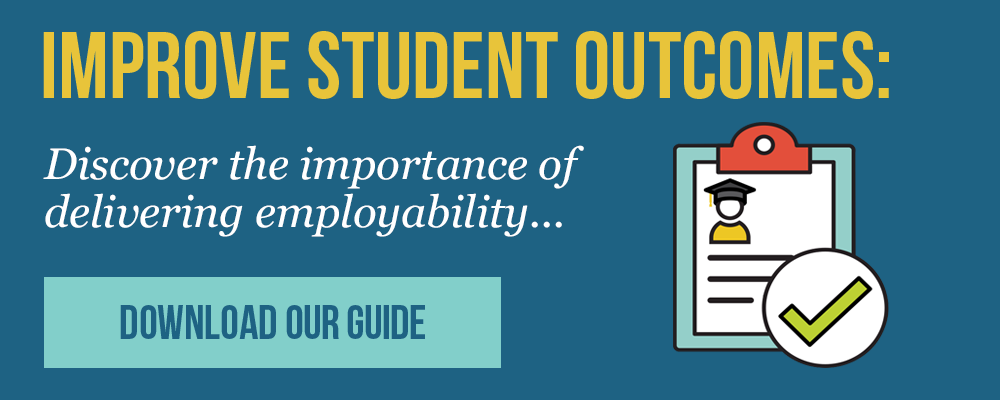
Education has changed more in the last few decades than it has done over the preceding centuries, with developing economies such as India being a prime example of this. Increased mobility, a growing middle class, competitive job markets and widespread access to information thanks to the internet have made higher education more desired and attainable than ever. The title certainly poses a bold question for faculty heads entrusted with bestowing academic qualifications on students, as it might suggest that degrees are losing their worth, both with students and employers. In this blog article, we explore the shifting perception of degrees, the cause of this paradigm shift and the role curriculum development plays in all this.
Graduate numbers are rising, yet employability among this demographic is not
As the number of graduates increases (especially in India within the engineering field, which releases around 1.5 million graduates a year), employers are beginning to look for other differentiating factors when choosing the ideal job candidate: employability skills. Yet, according to an employability survey carried out by Aspiring Minds, the vast majority of these graduates don’t possess these work-readiness attributes. Some employers, such as Ernst and Young, are even removing university degrees from their list of qualification requirements, given the lack of evidence supporting the link between high grades at university and achievement in a professional setting.
Degrees imply proficiency in a subject area rather than readiness for a profession
What does a degree tell you about an individual? That they’re intelligent, have the ability to apply themselves diligently and pass exams, have a theoretical (rather than practical) understanding of a particular subject and are disciplined enough to remain focused in one field for four (or more) years. It might also indicate skills and proficiency in a discipline. And not so long ago, a degree implied an aptitude to pursue a career in that field too. This is no longer the case.
A new set of parameters is needed to both prepare graduates for work and mark them out as desirable job candidates
With tertiary qualifications ceasing to be professional differentiating factors, there needs to be a new system in place to judge how prepared job applicants are for work. It’s likely that psychometric tests and personality frameworks such as Myers-Briggs will become more important for employers to assess whether a candidate will flourish within a role. That said, these tests are not true indicators of whether a graduate has the employability skills needed for a specific role. Perhaps more employers will begin crafting their own set of competency tests to decide which candidates they think have the greatest potential to succeed within their organisation (something Ernst and Young are already doing), instead of relying solely on the fact a candidate is a university graduate.
Universities need to work extra hard to prove to students that higher education is an important investment
The change in how organisations view degrees might mean that a university degree alone might not be as highly valued by students as they used to be, especially by those who prioritise their career prospects. The anticipation of student debt during their first years of employment might also deter students from pursuing higher education. As a result, your institution needs to add serious value to prospective students over and above core degree subjects. Curriculum development might entail offering work readiness training alongside core subjects that develop these all-important skills in students.
Curriculum development is a tool that can enhance institutional reputation
Rather than viewing the need for curriculum development as a harbinger of doom for the value of degrees, universities can adapt to the changing expectations of students and the job market. For instance, they can introduce curriculum development as a means of remaining competitive and bettering the outcomes of their students. The Industry Engagement Programme offered by Curriculo provides your institution with an opportunity to increase its attractiveness to talented students by offering them a means to increase their employability and career prospects. Demonstrating commitment to the professional outcomes of students can bolster your university’s credibility and brand reputation, helping it become a Tier 1 institution.
Download the guide for an in-depth view on how to improve student employability within your institution.


